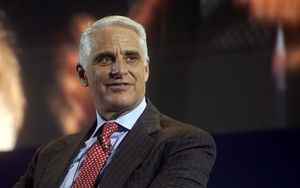(Finance) – “Thethe most complicated year will be 2023. For 2022 we are already in June, so we have already accumulated a number of achievements. If, on the other hand, there is an impact from the recession, we will have an idea of the true impact only in 2023, and for this reason it is more uncertain. We still believe that there will be a deceleration and not a recession“He affirmed it Andrea OrcelCEO of UniCreditspeaking at the eighth edition of the Italian CEO Conference, an annual event organized by Mediobanca which this year brings together over 50 CEOs of listed Italian companies and more than 180 Italian and foreign investors belonging to the main investment houses.
Orcel said the bank will give “a update on Russia at the end of the second quarter“.” In the first quarter we chose to consider the worst case scenario, we were conservative and we are well covered for any eventuality, “he added. The banker also highlighted that considering the franchise excluding Russia,” in the slowdown scenario in the economy “, UniCredit” can generate the value that supports distribution to shareholders “.
From the point of view of the macro scenario, the CEO confirmed a slowdown scenario, with a decrease in GDP estimates and an increase in inflation, but reiterated that he sees “less and less likely that we will go into recession”, as the months pass. . Speaking of the effects on the bank, he pointed out that, “if we take the NII, it will have positive impact from rate hikesfor the most part next year, and this will balance the lower volumes. “
“Let’s see one deceleration in asset management and investment decisions by households and businesses – he explained – While from the point of view of commissions, we confirm what was previously communicated: they will be slightly increasing year on year “.
Orcel said he’s not worried come on movements in government bond yields and spreads. “From a capital sensitivity point of view, we are not worried, while from the point of view of the impact on companies and families that borrow, we are in a benevolent environment. At this point we think that Europe will not follow the US, but will follow at a slower pace “.
